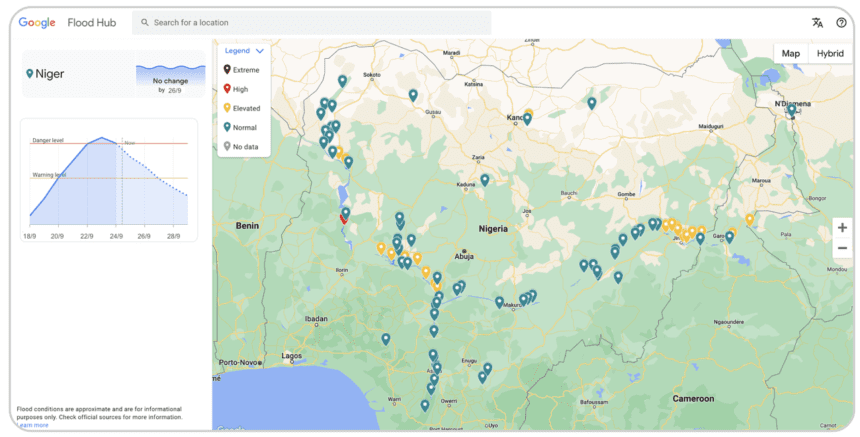Floods pose a significant threat to communities, as they are the most common and deadliest of natural disasters. Google Research has been dedicating resources to the development and application of AI modeling in the field of flood forecasting in order to assist communities worldwide in mitigating the impacts of climate change through AI-based early warnings for natural disasters.
Google’s flood forecasts are made accessible to the public through various channels, in collaboration with organizations, governments, and the WMO. The Flood Hub provides global flood information to the public, NGOs, governments, and researchers (g.co/floodhub). Additionally, Google actively partners with local humanitarian organizations that leverage the flood information to expedite their proactive efforts in supporting local communities. Below are four examples from the previous year:
Collaboration in Mozambique with Google and Give Directly for Anticipatory Action
In early 2023, a partnership was established with GiveDirectly, an aid organization providing unconditional cash transfers to communities in need, particularly in the most impoverished areas globally. Together, they conducted a trial to assess how riverine flood forecasts and digital cash infrastructure could enable communities to receive payments within a day of a flood warning, equipping them to better prepare for a potential disaster. The initiative was piloted in Mozambique during Cyclone Freddy in March 2023, with GiveDirectly disbursing cash transfers to over 4,100 households based on the Google flood forecasts, with support from Google.org. This endeavor yielded valuable insights into the level of geospatial detail and lead time required by aid organizations to distribute cash to communities expected to be impacted. Vera Lummis, Senior Manager of Digital Innovation at GiveDirectly, expressed, “Through our partnership with Google Research, we can combine new insights from AI-based forecasts with local early warning systems to better reach people at the frontlines of the climate crisis.” The collaboration is set to continue in 2024, with improved tools and expanded coverage in Bangladesh and Nigeria.









